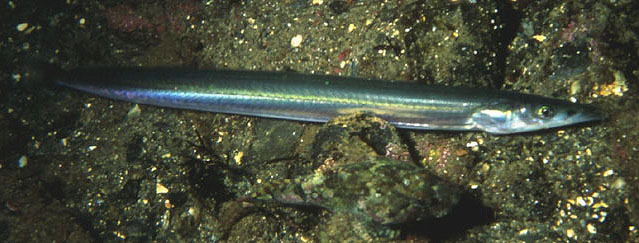| Ammodytidae (Sand lances) |
| 40 cm SL (male/unsexed) |
|
demersal; brackish; marine; depth range 6 - 30 m, oceanodromous |
| Northeast Atlantic: Murman and Spitzbergen to Portugal, including Iceland and much of the Baltic. |
|
Tip of pectoral fin reaches the front end of the dorsal fin. Dark spot on each side of the snout. Two pointed teeth in the palate. Upper jaw not protractile (Ref. 35388). |
| Inshore, including the inter-tidal zone and estuaries, and offshore to about 60 m depth. Commonly associated with Ammodytes species. Feeds initially on zooplankton, later small fish (clupeids and ammodytids) dominate the diet. Summer batch spawner. Used mainly for fishmeal and oil, but also utilized fresh and pan-fried for human consumption (Ref. 9988). |
|
Least Concern (LC); Date assessed: 10 March 2014 Ref. (130435)
|
| harmless |
Source and more info: www.fishbase.org. For personal, classroom, and other internal use only. Not for publication.
